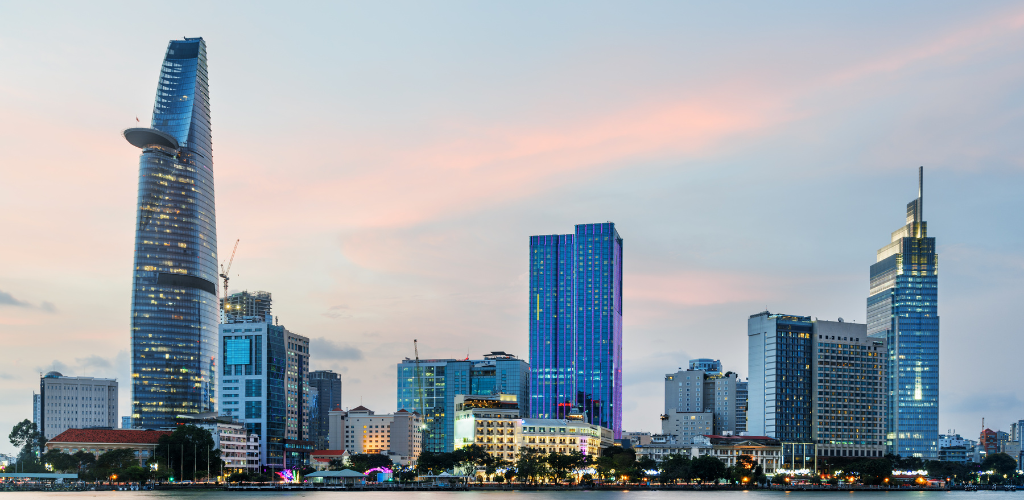
If you’re considering Ho Chi Minh for your next long-term destination, this article will highlight the pros of living in Ho Chi Minh City. For good measure, I’ll also be talking about the cons so you can decide fairly if the move is for you. I recently spent 6 weeks working remotely from Vietnam’s biggest city and had an amazing experience.
Ho Chi Minh has an enthralling vibe and is unlike anywhere I’ve ever visited before. The mixture of huge financial institutions and skyscrapers alongside the many traditional stalls, shops, and ways of life make it an exciting place to live. A fresh and developing tourism industry adds massively to the draw, too.
Having left the UK over two years ago, I now travel the world as a digital nomad. I’m always exploring new countries and cultures and weighing up where I might one day like to permanently call home. When I ventured to Asia for the first time, HCMC was my first stop and I enjoyed it so much that I’ve already booked my return.
I was lucky enough to secure a house sitting placement for 3 weeks in HCMC which added so much to my experience. I got to know a few particular neighborhoods well and experienced the city as a temporary resident rather than a tourist passing through.
If you’re interested in learning more about house sitting check out my other article – 8 Expert Tips for Landing a House Sitting Job.
15 Pros and Cons of Living in Ho Chi Minh
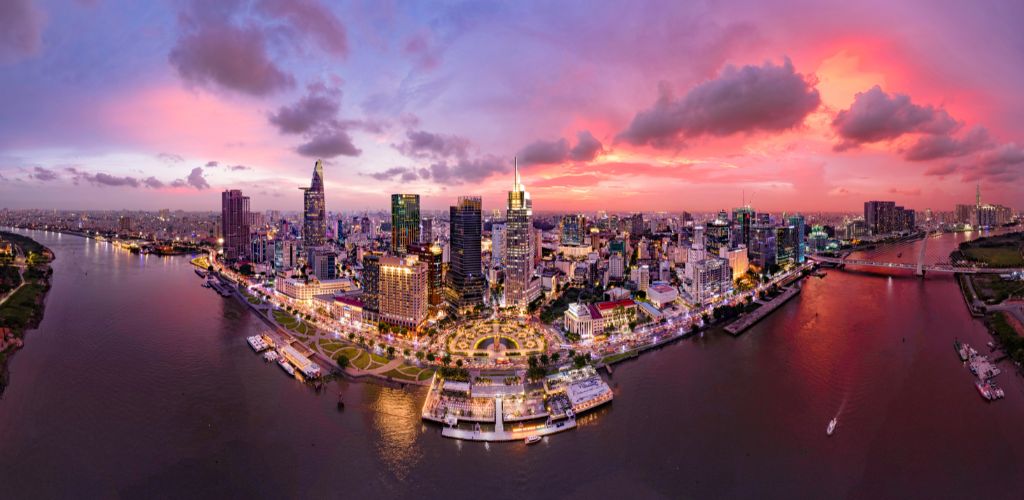
After some time away from Vietnam, I’ve had the opportunity to reflect on the pros and cons of living in Ho Chi Minh. I look at each place I visit from the perspective of whether I can imagine it being my permanent home one day and have factored in things related to key aspects of my life; many are relevant to anyone looking for a potential home base.
Elements such as the social scene, the cost of living, and the climate are important factors that I considered. The ease of attaining visas, connectivity with the rest of the world, and some essential home comforts also find a place in this list. All bases are covered!
Where is Ho Chi Minh?
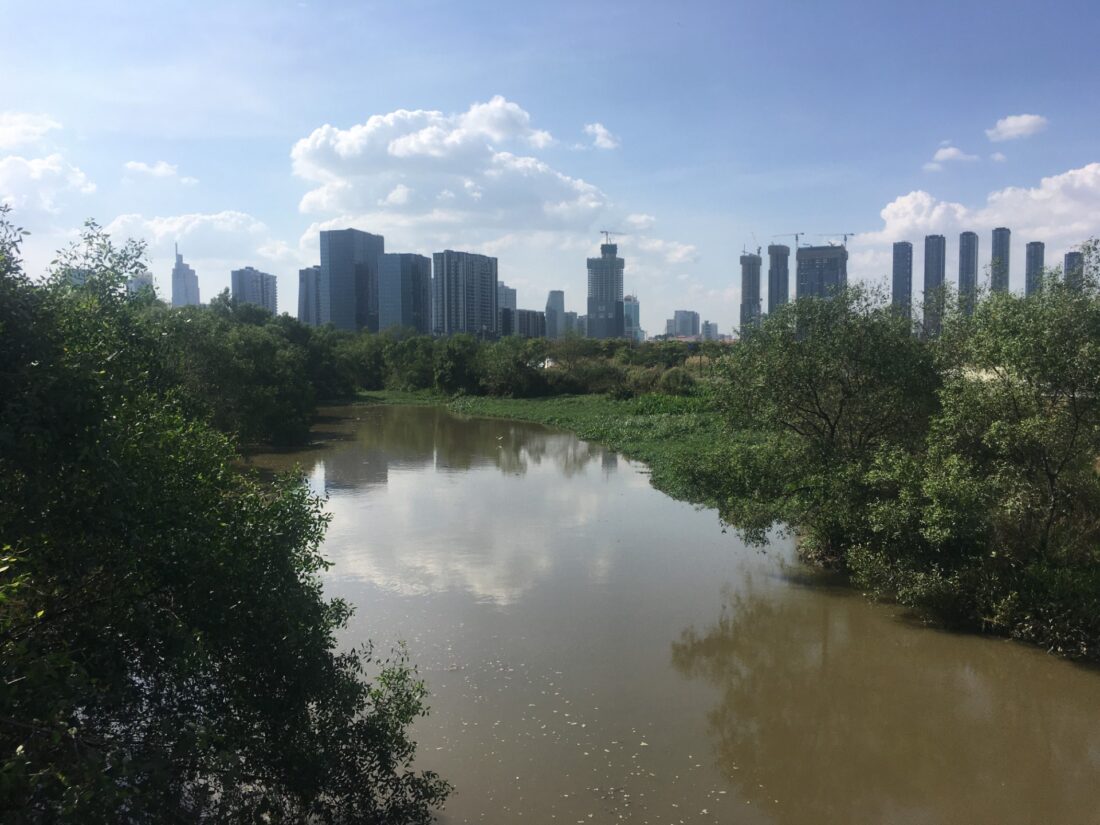
Ho Chi Minh is Vietnam’s most populous city. Formerly known as Saigon it is home to 9.3 million people and considered the financial powerhouse of Vietnam. Situated in the southern region of the country HCMC maintains strong connections with Hanoi, the capital city of the country in the north, as well as many other international destinations.
The city’s name was changed in 1976 following the end of the Vietnam War. The then South Vietnam capital had been an American ally, and as such, a permanent reminder of the North’s victory. It was renamed after the former leader of the North – Ho Chi Minh. Many people still refer to it as Saigon, and I’ll likely be switching between the two in this article!
Pros of Living in Ho Chi Minh

Let’s kick things off on a positive note and cover the top advantages of living in Ho Chi Minh. There’s so much to enjoy that I struggled to stop at just 10.
1. Cost of Living
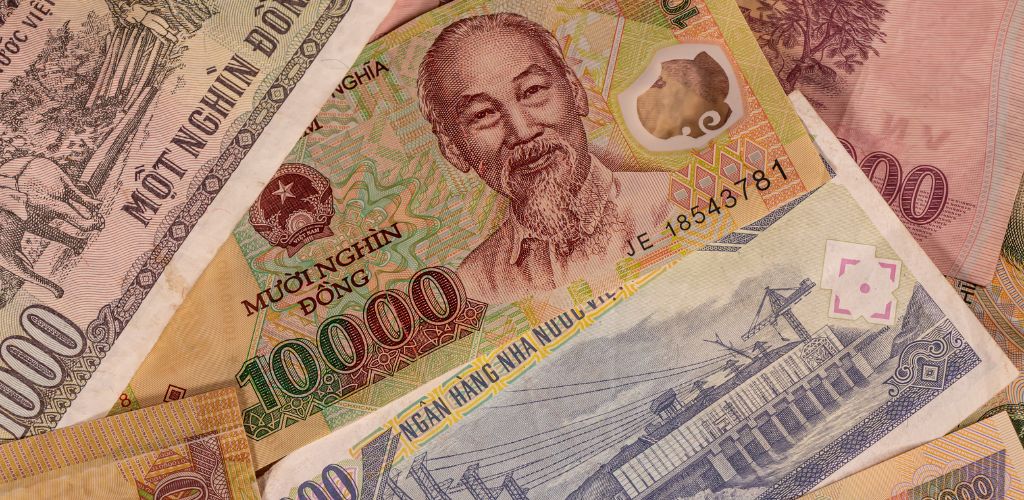
Money talks, and when we get down to it, Ho Chi Minh has a major advantage over many other cities. Across the board, I found prices to be significantly lower than in the UK or many of the US states that I’ve visited. From food, accommodation, and transport, I was pleasantly surprised at the cost of everything.
A decent meal out will cost as little as $2-$5, and a good cup of coffee is around $1.50. Getting around using Grab (Vietnam’s Uber equivalent) is safe, reliable, and costs $1-$2 for short journeys. A large domestic beer is under $1 and gasoline at $0.90 a liter ($3.40/gallon) is certainly much cheaper than in the UK.
Accommodation, whether as a tourist or someone looking for a more permanent base, is also remarkably low. The average apartment goes from anywhere between $310 and $500 a month depending on your proximity to the city center. I found that many of the mid to higher-end apartments include a communal pool and often even a fitness room.
2. Climate
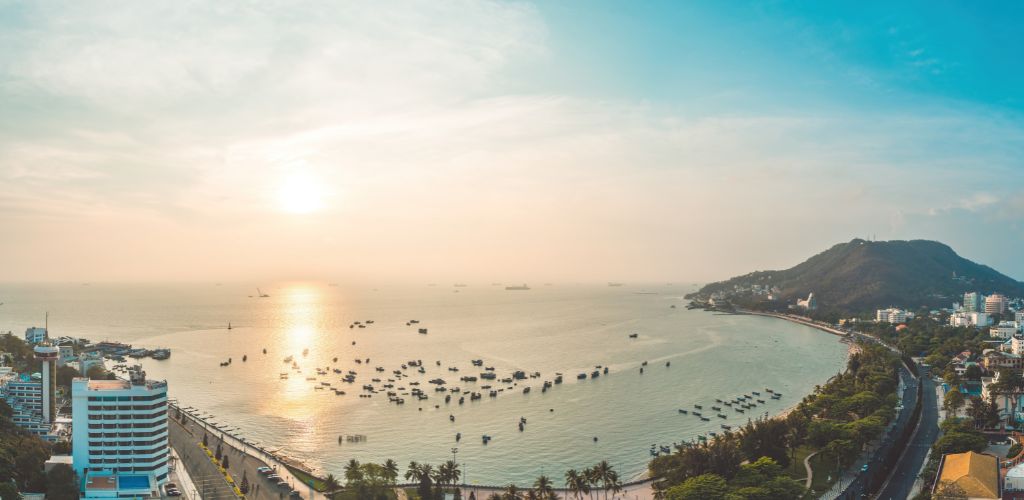
A big draw for Ho Chi Minh is the year-round warm climate. Temperatures on average stay between 22 to 34 degrees Celsius (72 to 94 degrees Fahrenheit). Despite the presence of a distinct rainy season, the pleasant climate is certainly an appealing proposition.
Many cafes and restaurants have outdoor seating throughout the year and air conditioning to keep them cool during the hotter months. The nearby beach town of Vung Tao is a beautiful coastal retreat around 2 hours away. It’s a popular year-round destination for locals and tourists alike.
I visited HCMC during the dry season months of December and January and the weather was simply perfect. During my 6 week stay it only rained once and every single morning was bright, warm, and sunny. Christmas Day by the swimming pool was certainly a different experience from being back in England.
3. Employment Opportunities

As a Communist country that’s going through somewhat of a Capitalist wakeup, Vietnam has many opportunities for those who have experience in Western vocations. As the country’s financial heart, Ho Chi Minh is a hub for banking and big business. There’s also a demand for those from tech and administrative backgrounds.
Permanent positions teaching English are abundant and the majority of the ex-pats I met in HCMC were teachers. Many schools adopt a British/Western approach to their education systems which means the structure and curriculum are familiar to those who have taught in the UK or US.
Programs such as TEFL are prominent in Vietnam with regular paid postings available. Volunteer websites like Workaway have listings for those seeking more casual, shorter-term language exchanges which are a great way to boost your teaching experience, and who knows, perhaps offer freelance English lessons if you choose to stay in the city for a longer period, later on.
4. Culinary Delights
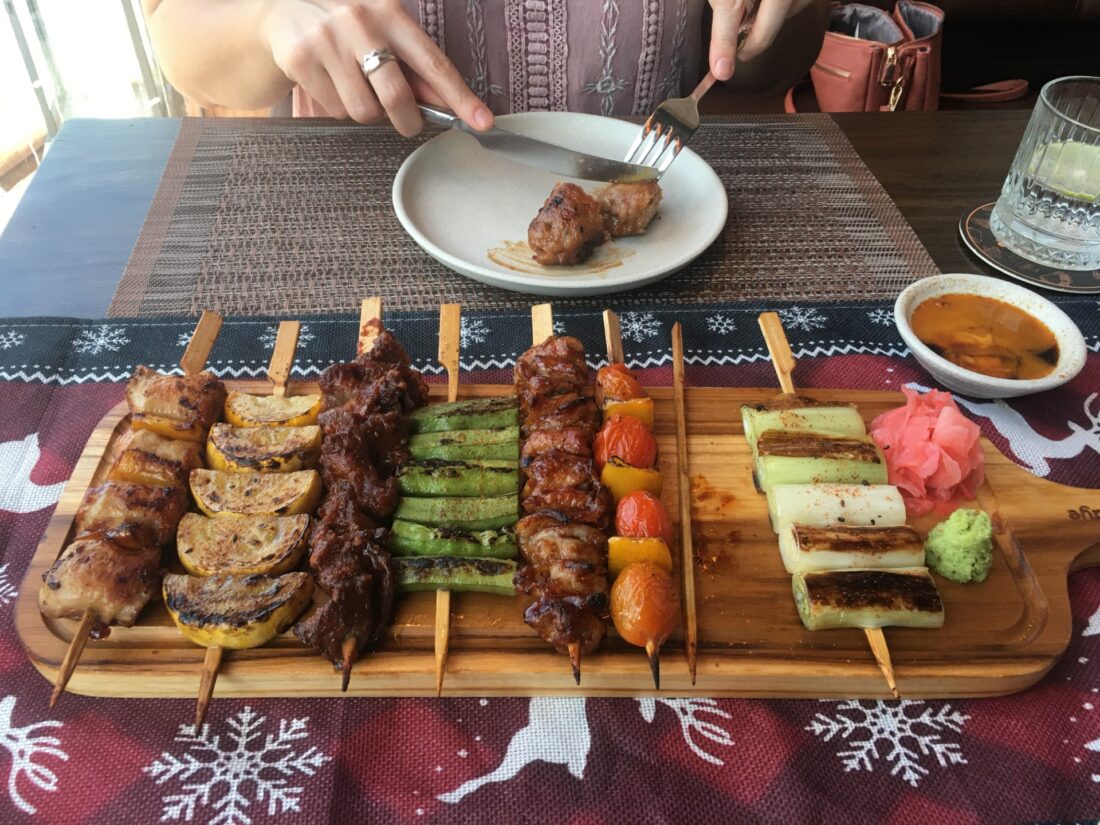
One of my favorite parts of living in Ho Chi Minh was the food. It offers a great mixture of cuisine which allows you to experience the full spectrum of national and international delights. Immensely popular, affordable, and delicious, street food reigns supreme, while top-notch restaurants are scattered throughout the city.
Meat, veg, and fish platters are commonplace while Pho is a popular classic Vietnamese dish. It’s characterized by a flavorsome broth, rice noodles, and varying additional elements such as thinly sliced beef or chicken. You can find it everywhere; from the corner street food stalls to entire restaurants specializing in it.
If you’re a bit fussy with food, fear not! There’s an abundant culture of Western food available across the city. From delicious French-influenced bakeries to great American-styled barbecue joints and outstanding authentic Italian pizzerias. You’ll pay a little more for these food types, but they’ll still be cheaper than in the US or UK!
5. Coffee
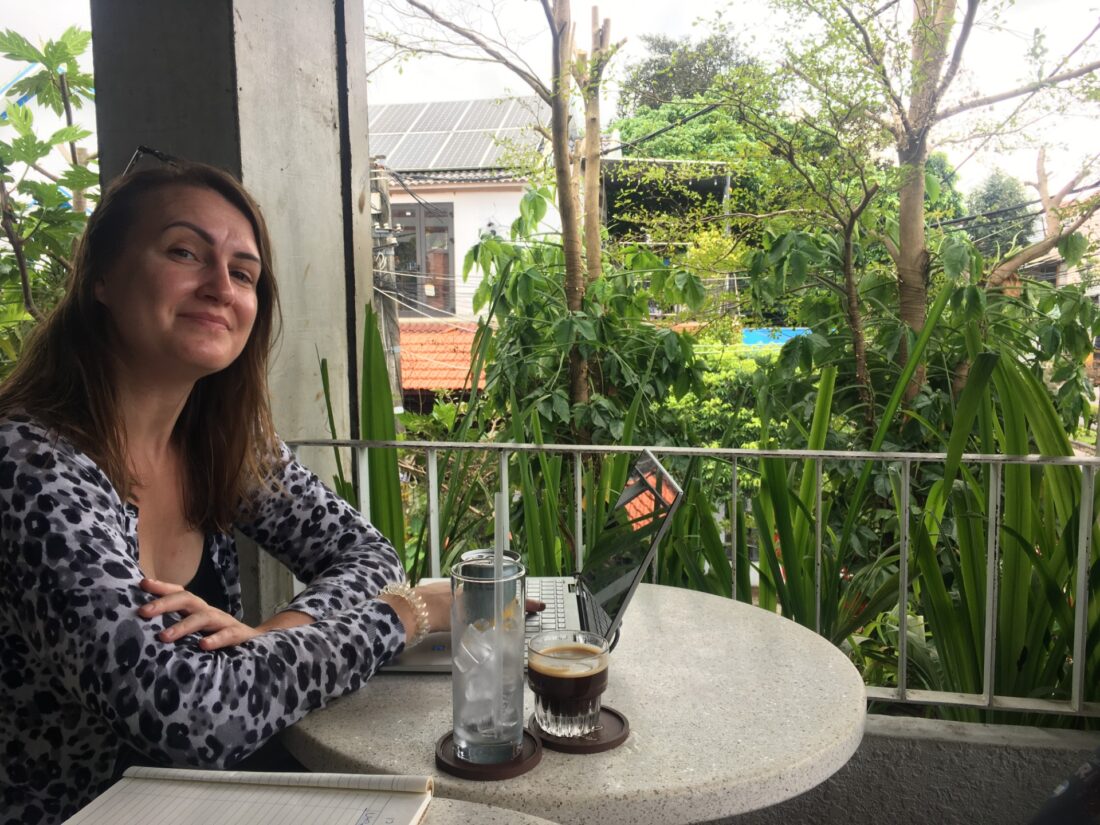
Coffee is a big deal in Ho Chi Minh. The abundance of cafes, coffee shops, and street stalls offering excellent coffee surprised me. Vietnamese coffee, served in small portions, is remarkably strong and incredibly inexpensive. I purchased a cup for as little as $0.40 on multiple occasions.
Be warned, as standard coffee usually comes iced with a sweet coconut cream, which is very tasty. But be sure to specify how you want it if this isn’t to your taste. Straight black is enough to knock your socks off. You might think you have, but trust me, you haven’t had a proper strong coffee until you’ve had one in Vietnam!
You can still find all your favorites—americano, cappuccino, and cafe lattes—but be prepared to pay extra and seek out larger coffee houses or chain cafes for these options. Starbucks does have locations in HCMC but the dominant chain of coffee shops is Highlands Coffee. They have over 200 stores in the Saigon region.
6. Social Scene

From rooftop bars and craft brew pubs to local happy hours and karaoke joints, Ho Chi Minh has everything you could ask of a social scene. It’s a really fun city to go out drinking in and serves up many opportunities to even out the work/life balance.
The explosion of the craft beer industry has not bypassed HCMC. I enjoyed many great bars and many delicious beers during my stay! Pasteur Street Brewing, Belgo, and The Heart of Darkness have numerous locations all over town and make some outstanding beer that’s sold across the country.
The concept of the ‘Happy Hour’ is something many HCMC bars fully embrace. In fact, it’s not so much a Happy Hour, but an entire Happy Afternoon in most bars! If you thought beers were cheap anyway, just wait until you see the offers available… 86 Proof in Xuan Thuy was one of my favorites – half-price everything from 4 pm-7 pm every day – what a deal.
7. Culture

Living in Ho Chi Minh comes with the significant advantage of many cultural activities to explore. The city has excellent museums, theaters, memorial parks, and noteworthy iconic statues, that are truly worth visiting. There are so many things to do here and endless ways to spend your downtime.
The War Remnants Museum is a stunning display of American aircraft and artillery left behind after the Vietnam War. The museum’s accompanying exhibitions provide deeper insights as well as some graphic reminders of the horrors of war. I spent a few hours wandering the exhibits; it was a real learning experience. Be warned – some sections are not for the faint-hearted!
The Ben Thanh Market is an exhilarating, fun, and slightly chaotic way to spend an afternoon. The traditional Vietnamese marketplace is home to hundreds of stalls selling everything from specialist fabrics and designer clothing to bags of peanuts and fresh fish. It’s an experience not to be missed. If you see something you like, be prepared to haggle and get a bargain.
8. Connectivity

For digital nomads like me or anyone who seeks a reliable connection to the internet at all times of the day, Ho Chi Minh has got your back. Great WiFi is available pretty much everywhere, even in places you wouldn’t expect like smaller independent cafes and even some public areas.
SIM cards are easily purchased and are activated immediately to give visitors the benefit of extra data whilst out and about. I purchased a Vinaphone SIM for $5/month but many other options are available. I didn’t even use all the 6GB of data due to the availability of good free WiFi in most places I went. Having a SIM is useful, however, for booking Grabs when you’re about and about.
Coworking spaces are readily available for digital nomads or anyone who simply seeks an office space. From 1-day hot desk opportunities to month-long packages with tons of added benefits, you’re sure to find an affordable coworking space in Ho Chi Minh to suit your needs, whatever your work requirements.

Ho Chi Minh is a very welcoming place to live. Despite the bustling atmosphere and vibrant streets, the city feels safe and inviting. Locals are predominantly welcoming of visitors and there isn’t a culture of hassling tourists like in some countries.
There are many ex-pats living in HCMC which can lend itself to a more familiar environment and provide some home comforts to those who seek them. Australian, Irish, and US Sports Bars and British Pubs are quite commonplace. Many shops and grocery stores sell everything from English biscuits and HP Baked Beans to American Bourbon and Twinkies.
Ex-pat social media pages and groups are easy to locate and regularly host get-togethers, nights out, and local events.
10. Further Travel Opportunities
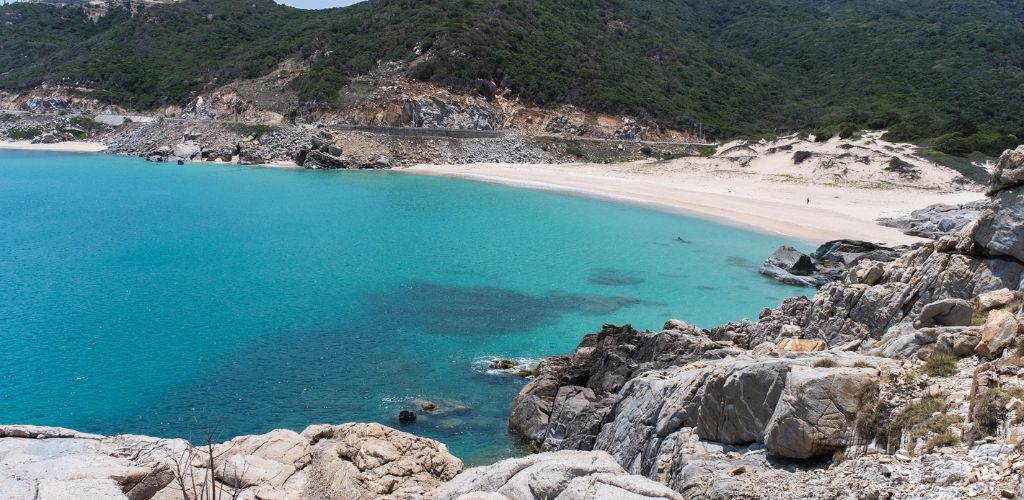
Tan Son Nhat International Airport is located within easy reach of all areas in Ho Chi Minh and is a major transportation hub. It maintains strong connections with countries across Asia and the world. Airlines such as Vietnam Airlines and Air Asia offer affordable options and regular flights to countries around Southeast Asia.
It’s even possible to take a bus to Cambodia, boat trips to other fantastic Vietnam locations like Vung Tau, and overnight sleeper trains to pretty much anywhere in the country. Ho Chi Minh is a gateway to many amazing places and travel opportunities.
I caught the river ferry along the Saigon River that took me from the center of HCMC to Vung Tau for around $15 each way. It only took a couple of hours and was very comfortable. There was free WiFi and snacks as well as a beer trolley. It was a beautiful ride down the river to spend a few days on the beach.
Cons of Living in Ho Chi Minh City
As with anywhere in the world, there are of course some disadvantages of living in Ho Chi Minh. Anyone considering a switch to living in HCMC must consider the following carefully;
1. Language Barrier

While many locals do have a basic understanding of English, it’s far from widely spoken. I met many Vietnamese people who didn’t speak or understand a word of English, and as my Vietnamese is beyond bad, it created some challenging situations.
Apps are widely available for helping with basic translation issues and for the most part as a visitor, it is easy to get by. But anyone planning to live in Ho Chi Minh on a longer-term basis should keep in mind that daily interactions or industry-specific conversations could be difficult.
2. Cultural Differences
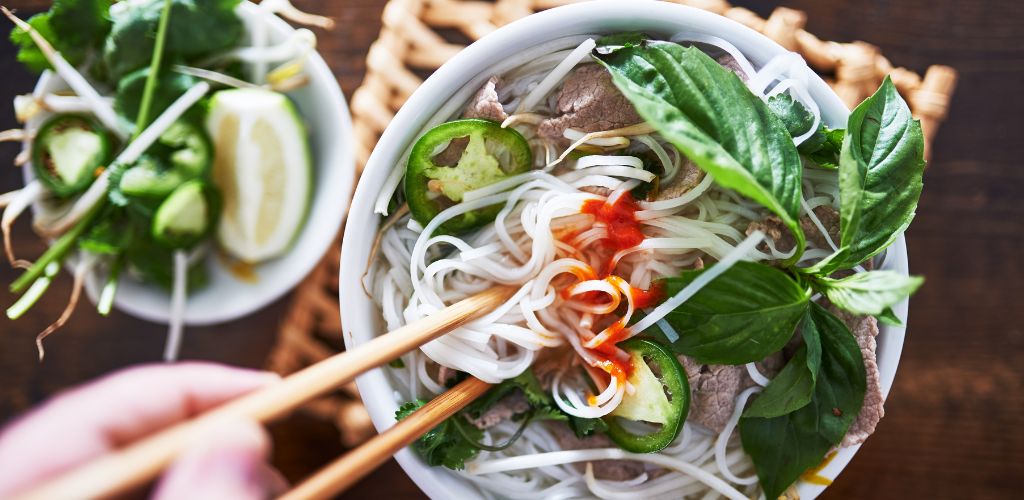
Living in Ho Chi Minh presents a unique cultural experience, but it’s important to be aware of potential discomfort stemming from cultural differences. While many locals in HCMC are welcoming, there can be instances where cultural nuances might lead to misunderstandings or difficult situations for ex-pats.
Despite the increasing global influence in HCMC, there remains a substantial cultural gap for foreigners. Traditional customs, communication styles, and social etiquette differ significantly in numerous ways from Western norms. As an example, I learned to use chopsticks very quickly as many restaurants do not provide knives and forks.
While tools exist to help navigate these differences, visitors should anticipate a learning curve. I found that embracing the local culture, maintaining an open-minded approach, and actively seeking to understand and adapt to Vietnamese customs enhanced my overall experience of living in HCMC.
3. Adverse Weather, Rain, and Humidity
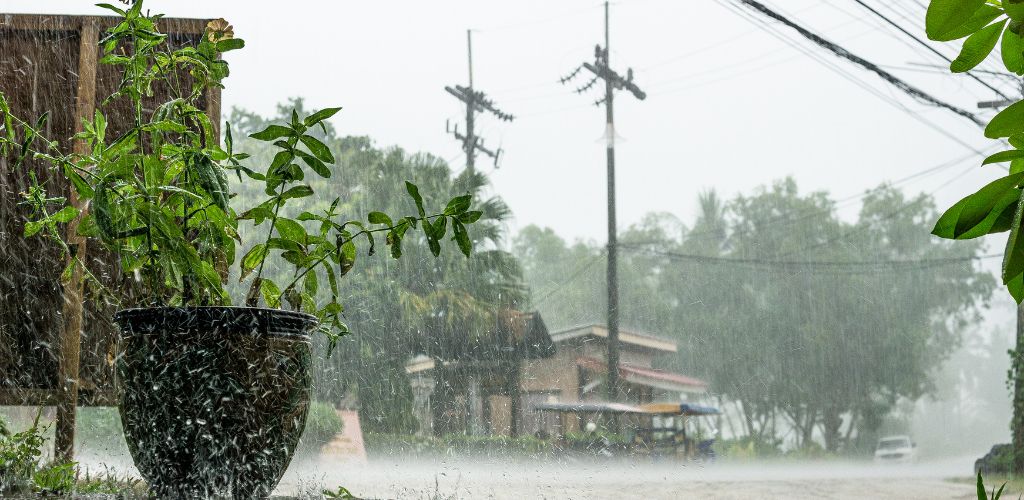
One of the downsides of living in Ho Chi Minh can be the weather. HCMC has a tropical climate, characterized by high temperatures, humidity, and distinct wet and dry seasons. The weather, particularly during the wet season, can be a real negative.
The tropical climate brings with it heavy rainfall which often leads to flooding in certain areas of the city. Navigating through flooded streets can be a huge inconvenience, with residents regularly needing to adapt their daily routines. The humidity levels can be particularly intense, and for those not accustomed to such conditions, it might take time to acclimatize.
While the weather can be a subjective aspect of daily life, being aware of the conditions can help mitigate the challenges associated with the weather in HCMC.
4. Chaotic Roads/Air Pollution
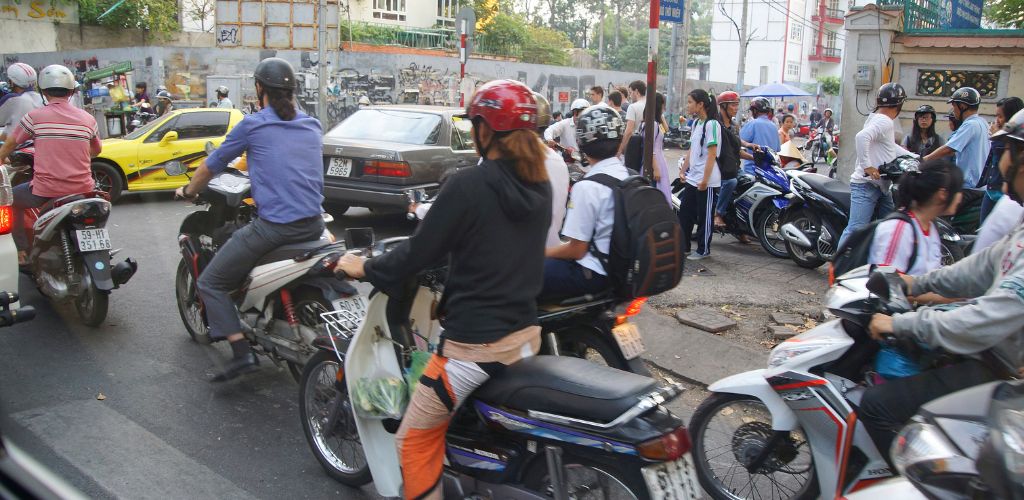
While Ho Chi Minh City’s energy and vibrancy are undeniable, the sheer volume of motorbikes and vehicles on the roads creates a chaotic traffic environment. Roads in HCMC often lack the organized flow seen in most Western countries, and traffic rules are interpreted, shall I say, quite flexibly…
Crossing the streets can be a daunting task, as pedestrians often need to navigate through a continuous stream of motorbikes and vehicles. This road chaos can be both overwhelming and challenging, particularly for those accustomed to more structured traffic systems. It’s not unusual to see vehicles driving down the wrong side of the street or using pavements to avoid traffic.
In addition to the traffic congestion, air pollution is a concern in HCMC, primarily due to vehicle emissions. The combination of high-density traffic and industrial activities contributes to high levels of air pollutants. Ex-pats, especially those with respiratory sensitivities may find this difficult to live with.
5. Visas
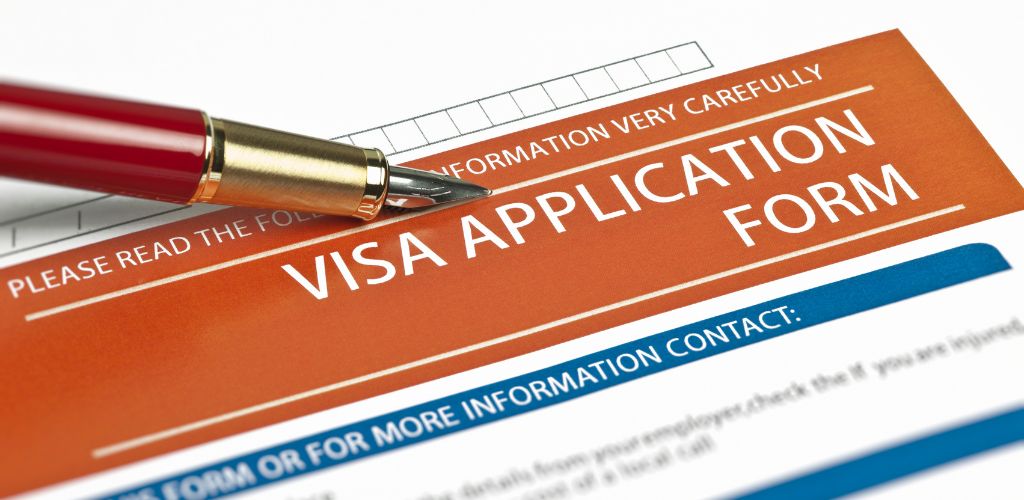
Navigating the visa process in Vietnam, particularly for anyone planning an extended stay in Ho Chi Minh, can be a complex and sometimes challenging aspect of ex-pat life. While Vietnam offers various visa options, including tourist visas and business visas, the requirements and regulations can change, and staying informed is crucial.
The visa application process can involve paperwork, fees, and periodic renewals, and it’s essential to adhere to the specific visa type and duration allowed. Overstaying a visa can result in penalties and seriously affect your legal status in the country.
Citizens of different countries are entitled to varying lengths of stay and being aware of the rules and lengths of your visa is crucial. Seeking guidance from local authorities, immigration services, or legal professionals is advisable to ensure compliance with Vietnamese visa regulations.
Is Living in Ho Chi Minh City Worth It?
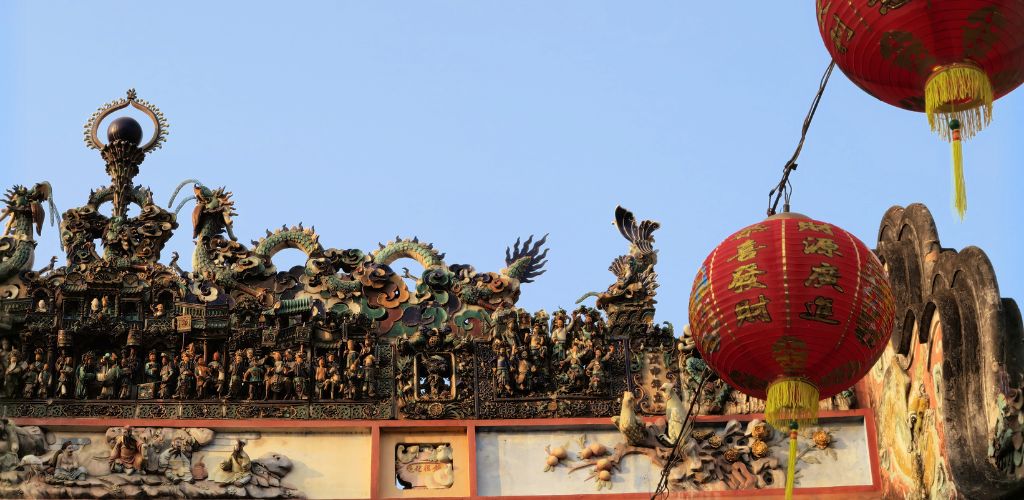
Living in Ho Chi Minh is a brilliant experience and would suit those who seek cultural immersion, diverse job opportunities, and a more affordable lifestyle. The city’s rich history, excellent social scene, and easy travel access within Southeast Asia only add to its appeal. Plus, let’s not forget it rarely drops below 72 degrees Fahrenheit.
While there are certainly downsides to living in Ho Chi Minh, I found that these hurdles are outweighed by the positive aspects of living there. My time in HCMC was ultimately made more enjoyable by the cultural differences, crazy rain storms, and chaotic road crossings!
I’m already looking forward to returning to Vietnam. Is living in HCMC worth it? I say absolutely YES!